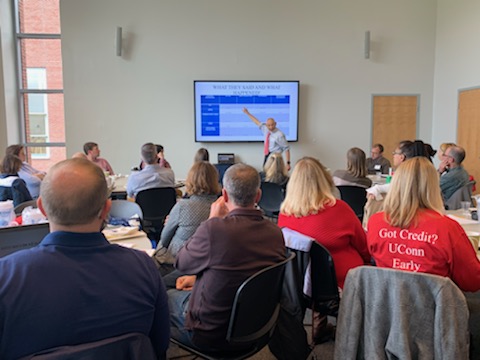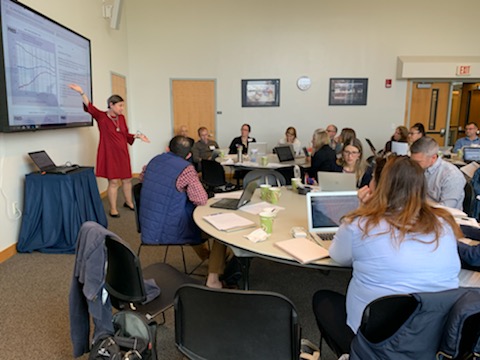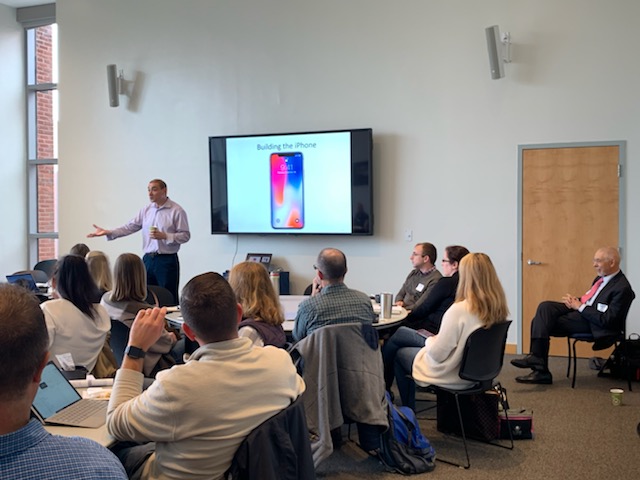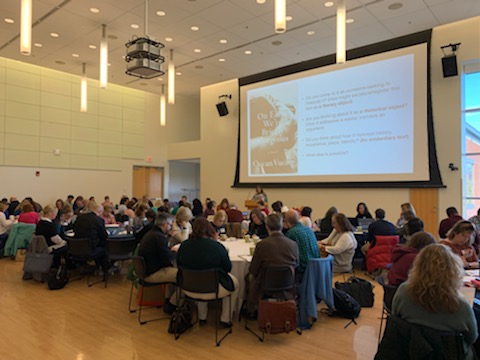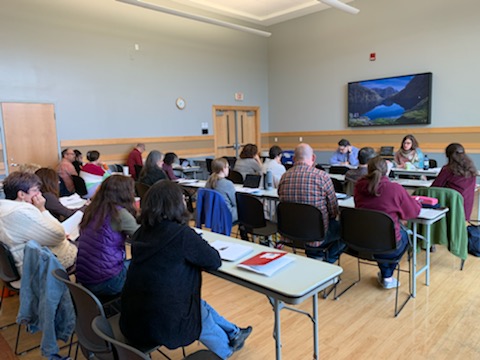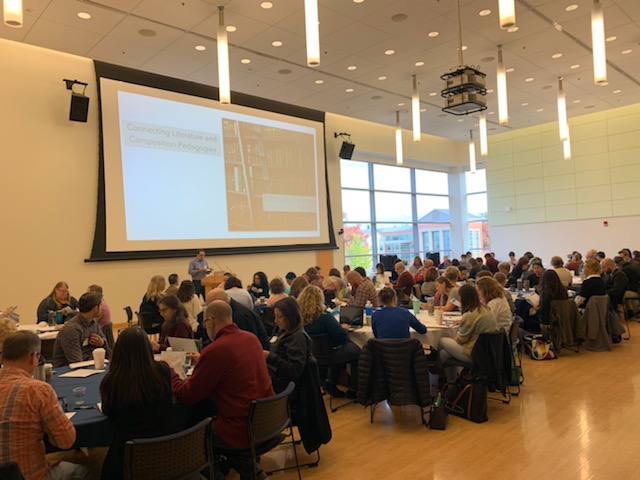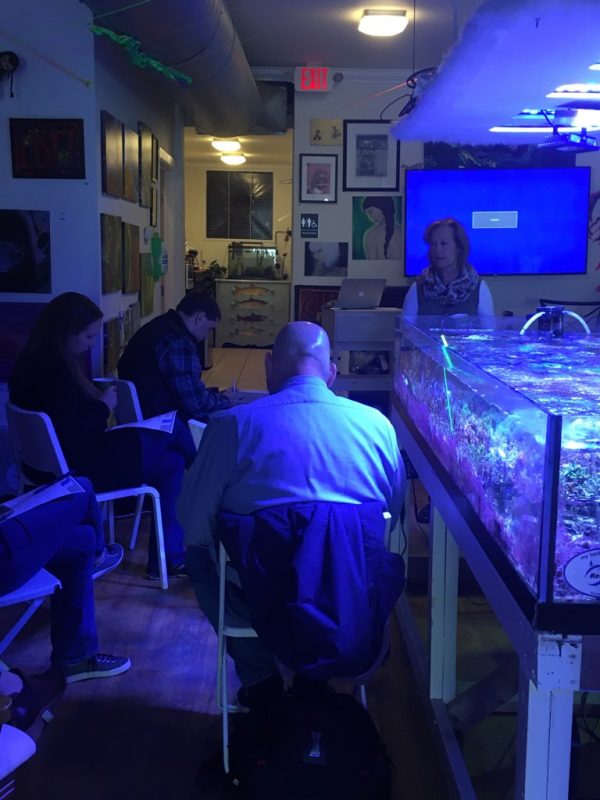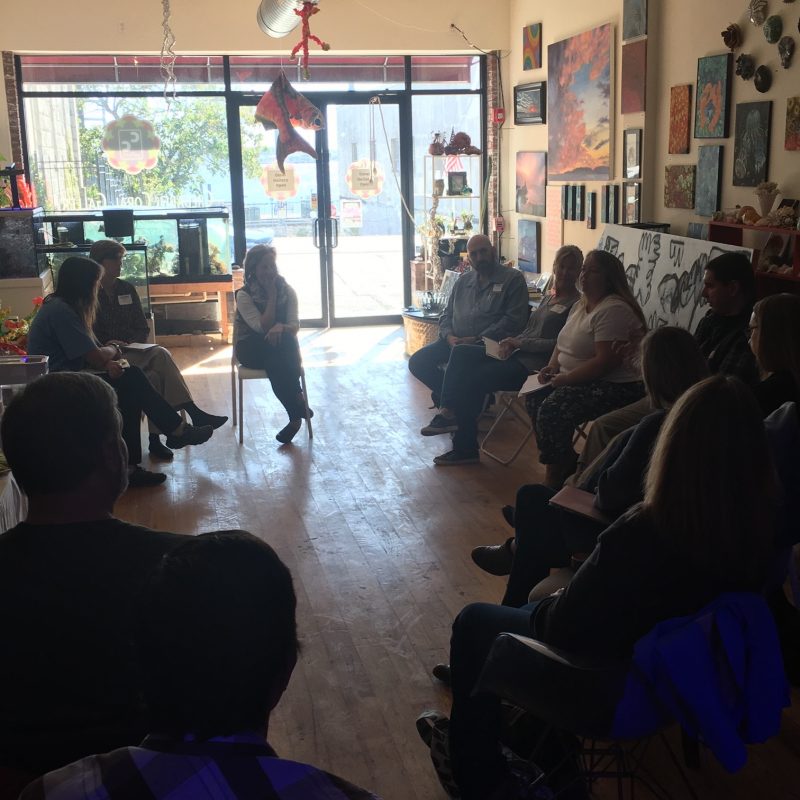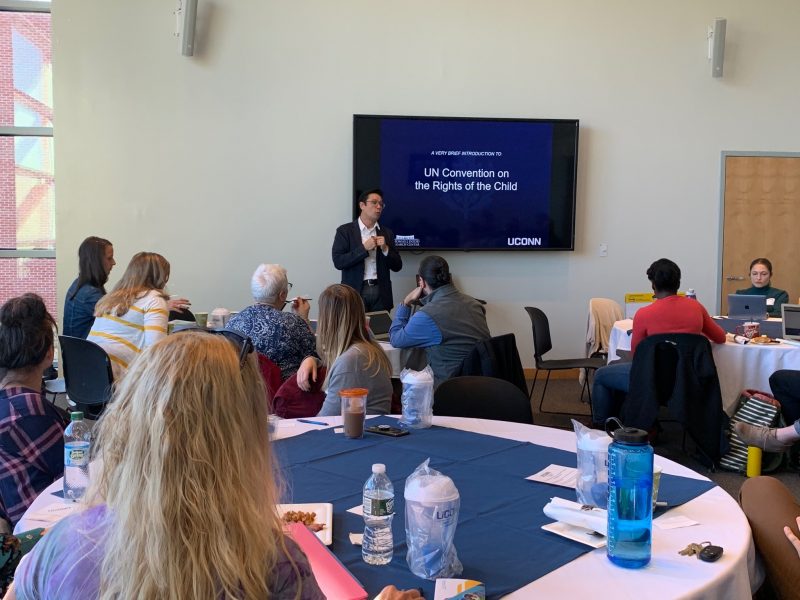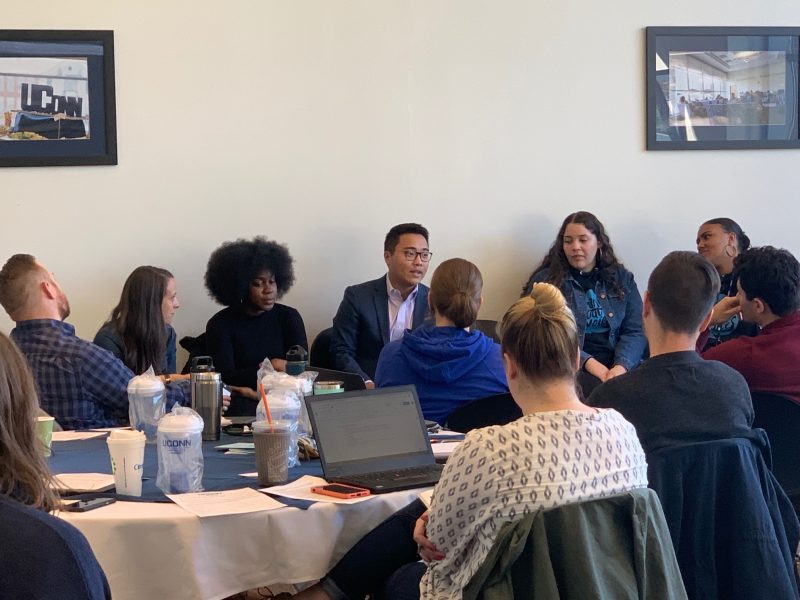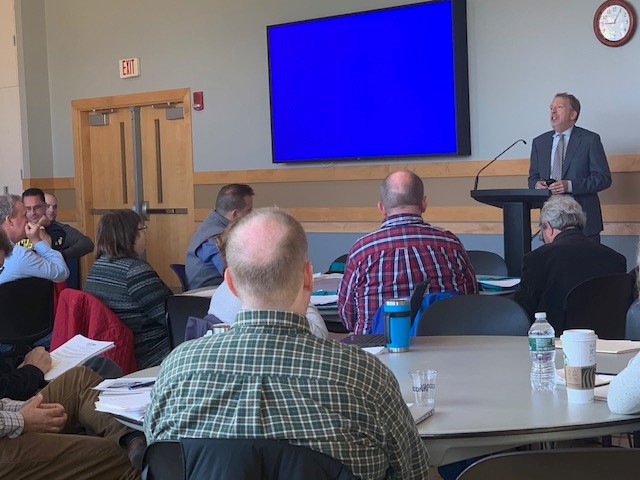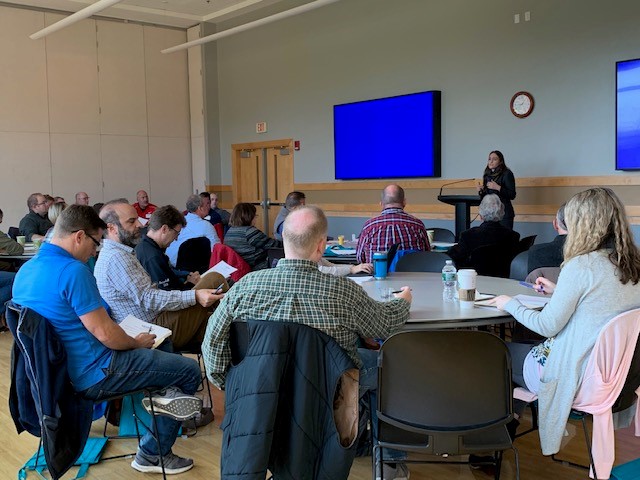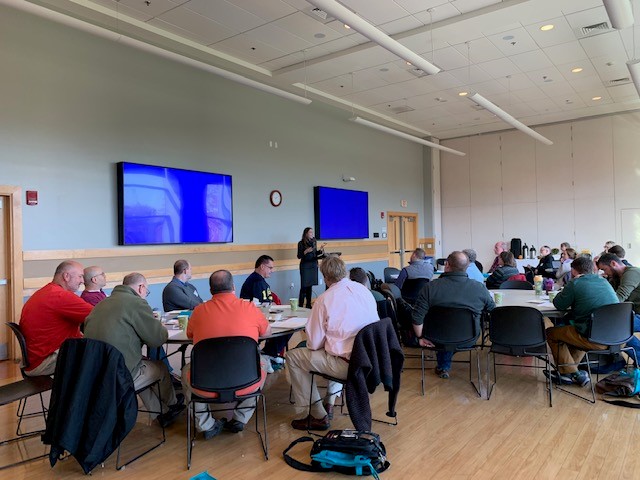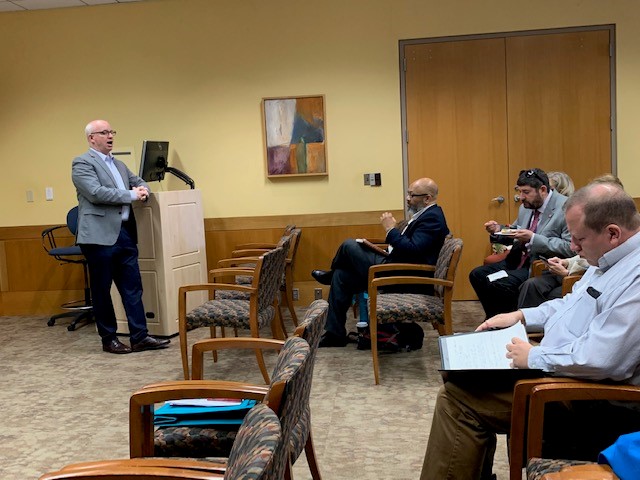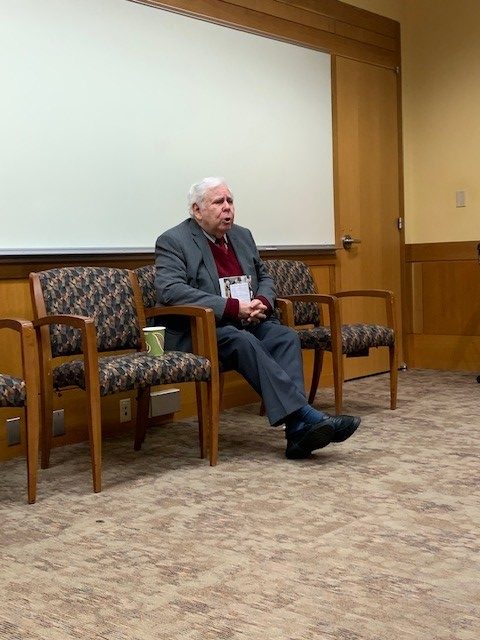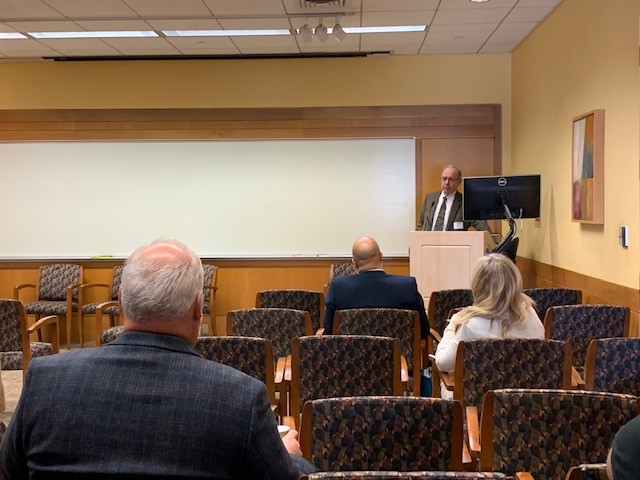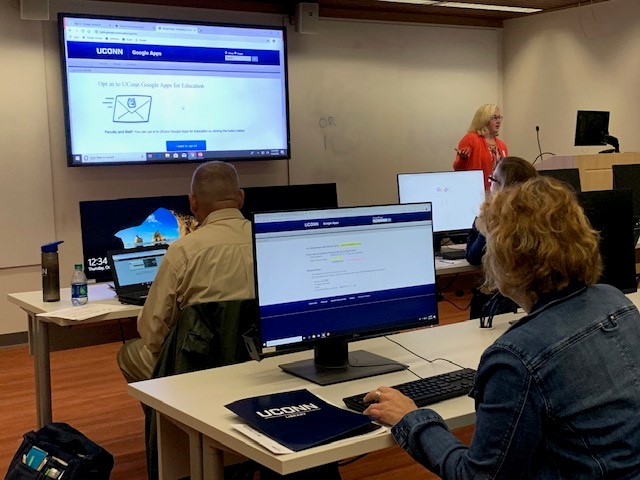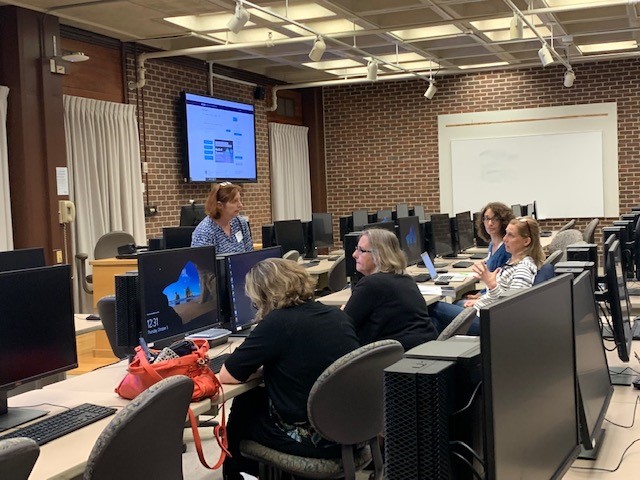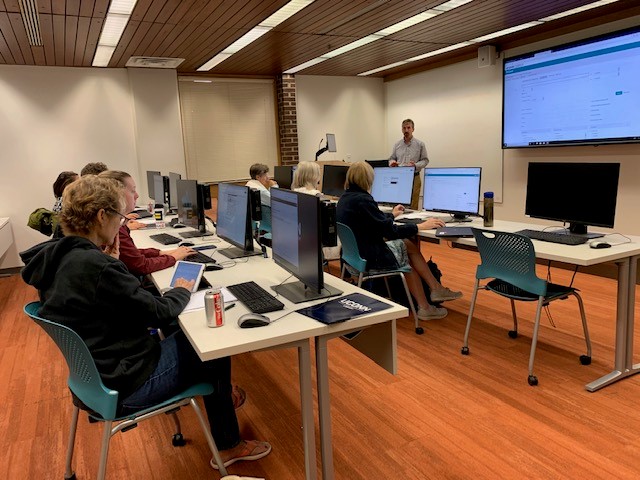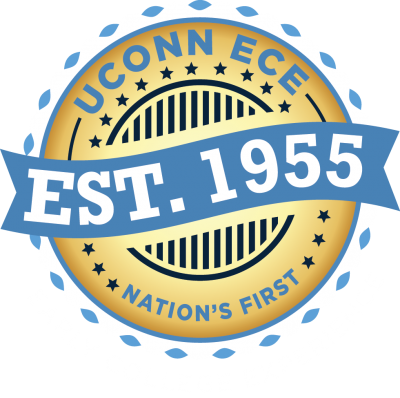Economics Professional Development Workshop
On Wednesday, October 30th, UConn Early College Experience and the Economics department invited all certified UConn ECE Economics instructors to campus for their professional development workshop. The instructors listened to presentations by:
- Professor Mikhael Shor, University of Connecticut, Economics: Economics: “Patent Holdup - a classroom demonstration of monopoly power?
- Professor Natalia Smirnova, University of Connecticut, Economics: “Using Data in the Classroom: FRED Database”
- Professor, William Alpert, University of Connecticut, Economics: “Prediction -- Really?”
- Professor Steven Lanza, University of Connecticut, Economics: "Economic Indicators: Rediscovering Lost Arts"
- Professor Nishith Prakash, University of Connecticut, Economics: “Street Police Patrols and Violence Against Women in Public Spaces: Experimental Evidence from India: Update!”
Many thanks to Faculty Coordinator Bill Alpert for coordinating the speakers for the day.
UConn Economics classes offered through UConn ECE.
